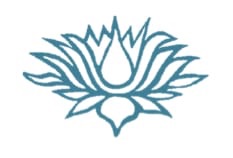|
9/16/2017 5 Comments Truth. In my last post I introduced the ethical foundation of yoga, the yamas and niyamas, suggesting that these ancient “dos and don’ts” offer a timely guideline for behavior, even today. I explored the practice of “ahimsa” or non-harming and its relevance to life, as we know it, in the early 21st century. Come along with me now, and consider the second of the yamas, satya (truthfulness) and its importance in today’s world. Sometimes I wish I were a brilliant satirist. I’d love to approach the topic of satya with the wit of Stephen Colbert. Remember his bit on the Colbert Report on “Truthiness?” He was poking fun at our 21st century interpretation of truthfulness. His implication was that we dwell in a time when truth is “fluid.” The very word “truthiness” exemplified his point. Any one of us, at any time, can invent a truth, present it with conviction, and fully expect to be believed. This has always been the case, of course, but it seems pandemic today. It seems to have become second nature to so many of us, in this era of Facebook and Twitter, Snapchat and Instagram, to present our opinions, our profiles, our “selves” just slightly (and in some cases, wildly) skewed from truth and toward some imagined ideal. It seems that our obsession with being “liked” by “friends” and “followers” takes precedence over authenticity. After all, earning the admiration of an unknown internet populace powerful enough to make us “go viral” feels powerful. Imagine hundreds of thousands of hits, likes, and comments. It’s intoxicating. Don’t you think? Wow! I cannot imagine that ancient yoga masters could have divined the state of affairs we find ourselves in today. It’s almost unbelievable. We have a sitting president who seems to disregard truth in favor of praise. Public figures are coached in the art of "the spin." We witness flurries of internet activity that pronounce such a wide variety of realities that the mind boggles. Yet ... breathe with me, here ... we find in the Yoga Sutras, a challenge to live a life of truthfulness. So, in the twenty-first century, how do we understand and rise to that challenge? It ain’t easy, folks, but it is pretty simple when it comes right down to it. Satya. Truthfulness. Consider your typical day. Upon awakening, what is the first thing you do? If you are concerned with satya (truthfulness) you take time to recognize that you have awakened from sleep. That is true. You connect with your breath, that which delivers your life force, your prana, to every cell in your body, including your brain. You take time to recognize the improbability of your very existence. (For an enlightening and entertaining video on this, see “Galaxy Song - Monty Python's The Meaning of Life” on YouTube.) And then, you touch your feet to the floor. This is a powerful moment of truth. Here you are, a biped, with a highly complex and sophisticated brain, standing … responding to powerful biological needs. You probably shuffle to the bathroom and begin your morning ritual. Right here, right now, you are at risk of straying from satya, that which is true. Why? Because we are creatures of habit and habit gives rise to a form of unconsciousness. In this state of unconsciousness, we enter a world removed from truth. “Not that there’s anything wrong with that,” as Seinfeld used to say, just that it’s worth noting. When we take time to notice even the small ways in which we remove ourselves from what’s true we practice breaking the habit of being untruthful in larger ways. It could be argued that small untruths are harmless, even helpful in certain social interactions. For example, it may be true that your in-laws irritate you, nevertheless you smile and nod your way through visits, “keeping the peace.” But, ask yourself, is there another, more truthful way? Might you learn to respect your differences and come to appreciate the endless variety of human behaviors? Is there a possibility to more closely examine your irritation and learn from it? Is it possible that the irritation runs both ways? What if you were able to see your in-laws as a mirror, of sorts, into your own behavior? Fearless self-examination is a form of truth seeking. As with all the yamas and niyamas, satya is a practice, a practice of noticing falseness in ourselves and correcting it. The point of the practice, it seems to me, is to journey through life with self-awareness and integrity. When individuals behave with integrity, the social fabric of the culture is woven with strong threads of truthfulness and wisdom. A culture of integrity is a culture that values truth, not truthiness. And, in the words of the Dalai Lama: (When there is a) "... lack of moral principle, human life becomes worthless. Moral principle, truthfulness, is a key factor. If we lose that, then there is no future." Today, more than ever, co-creating a culture of integrity is critical. Truthfulness ensures our future. Practice satya every day as a way of contributing to the future. Notice when you stray from the truth. Make an effort to correct it. ~Namaste~
5 Comments
natalie
9/18/2017 08:10:23 am
Thank you, Dee!
Reply
1/26/2018 08:01:48 pm
Everyone of us seeks for the truth. Everyone believes that life will give us a lot of things that will set us from all the worries we have. We all have the capacity to make things right. We just have to believe about what is true within us. We have to find first the truth in ourselves so we can believe in the beauty of life. That is what yoga teaches us. That is to find the truth within us.
Reply
1/17/2018 12:14:35 am
It’s challenging to discover your own faults. We tend to be blind of our imperfections. Using social networking sites can even be a tool for us to stray away from the truth without us noticing it. Because people tend to go with the flow, we tend to do things not because it’s right for us but because we don’t want to be left alone. I was inspired by your article. I truly hope I will be able to find my flaws and change it.
Reply
Leave a Reply. |
Inner Reaches Blog
Dee Gold M.A., ERYT-500
Dee is owner and director of Inner Reaches Yoga & Health. She has been teaching yoga and practicing healing arts for over 40 years. Archives
September 2017
Categories |
Search by typing & pressing enter

 RSS Feed
RSS Feed